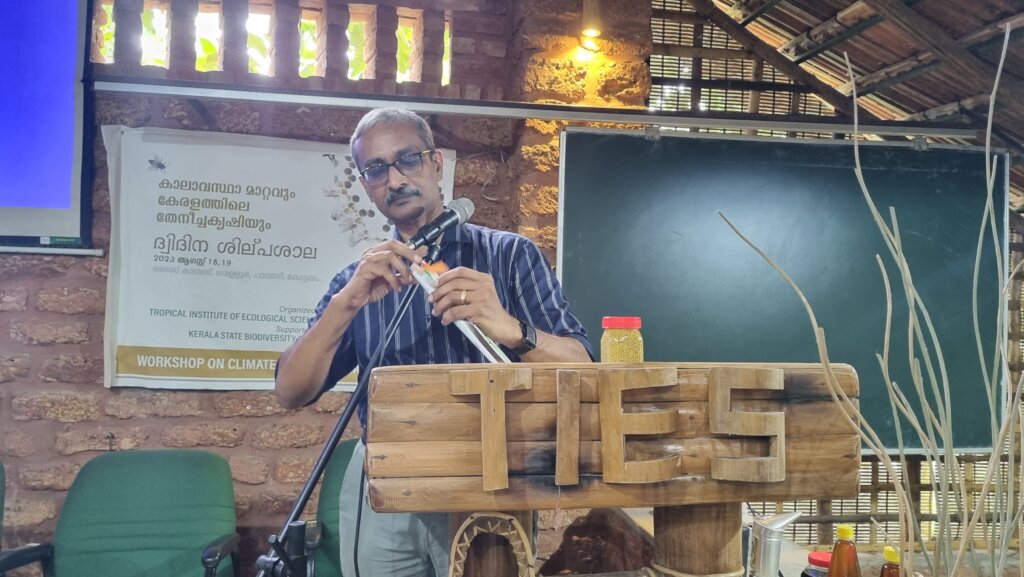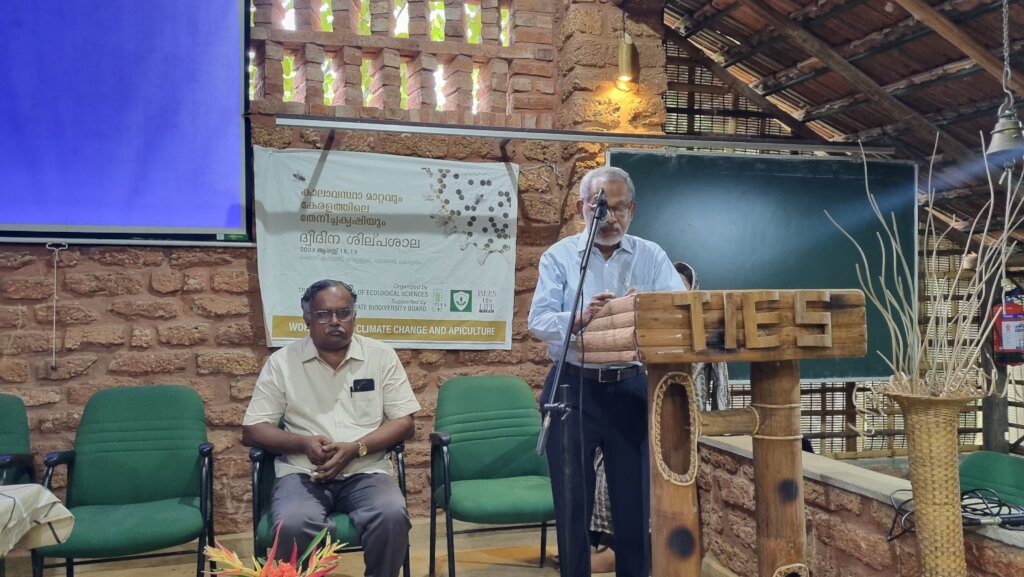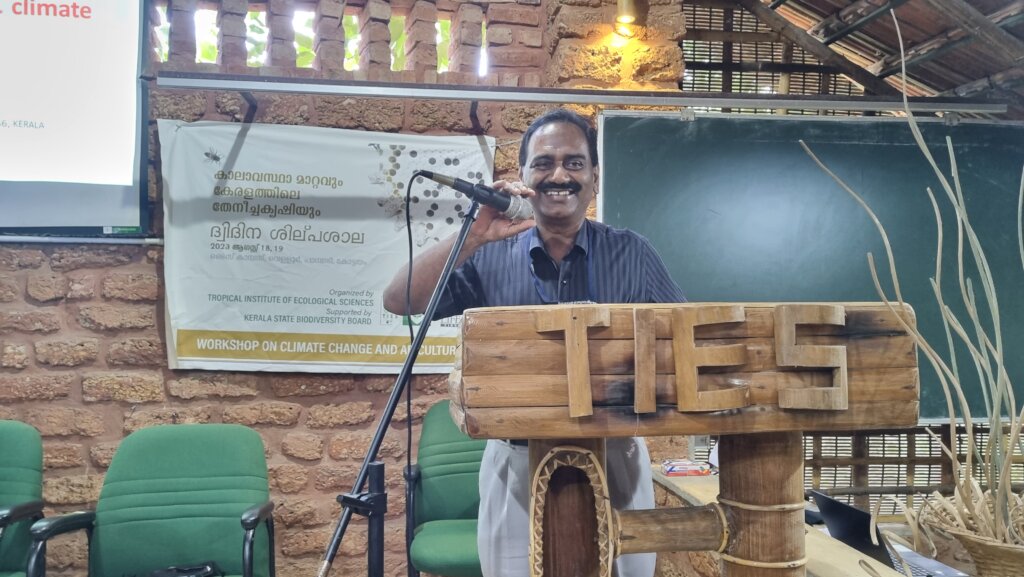By SARATH BABU N B | Project Leader
Climate change has had a significant and detrimental impact on bee colonies in Kerala this year, resulting in diseases, colony abandonment, and increased pest attacks. These challenges have had a severe and far-reaching impact on honey production, leading to substantial financial losses for beekeepers and ecological consequences. To address these pressing issues, Tropical Institute of Ecological Sciences (TIES) organized a two-day workshop that brought together leading researchers, students, and experienced beekeeping farmers. During the workshop, Dr. Mani Chellappan, Dean of Kerala Agricultural University, provided insights into how changing weather patterns have affected honey bee colonies and offered practical solutions for adaptation and mitigation. Additionally, Dr. A P Thomas, Director of ACESSD at Mahatma Gandhi University, discussed contemporary weather pattern changes and their implications for the ecosystem, including bee populations. Prominent beekeeping farmers such as Mr. Biju Joseph, Adv. Jose Cyriac, and Mr. Joseph Kunju shared their experiences and the practical strategies they have implemented to combat these challenges. Coordinating the open session, Mr. Jose Louies, Chief Advisor of Bees for Life at TIES, consolidated the discussed adaptation and mitigation measures into a protocol aimed at supporting bee farmers in their efforts to combat climate change's adverse effects on bee colonies.
"Save bees"
https://youtu.be/9LIjXKq2yWU
Project reports on GlobalGiving are posted directly to globalgiving.org by Project Leaders as they are completed, generally every 3-4 months. To protect the integrity of these documents, GlobalGiving does not alter them; therefore you may find some language or formatting issues.
If you donate to this project or have donated to this project, you can receive an email when this project posts a report. You can also subscribe for reports without donating.
Support this important cause by creating a personalized fundraising page.
Start a Fundraiser

